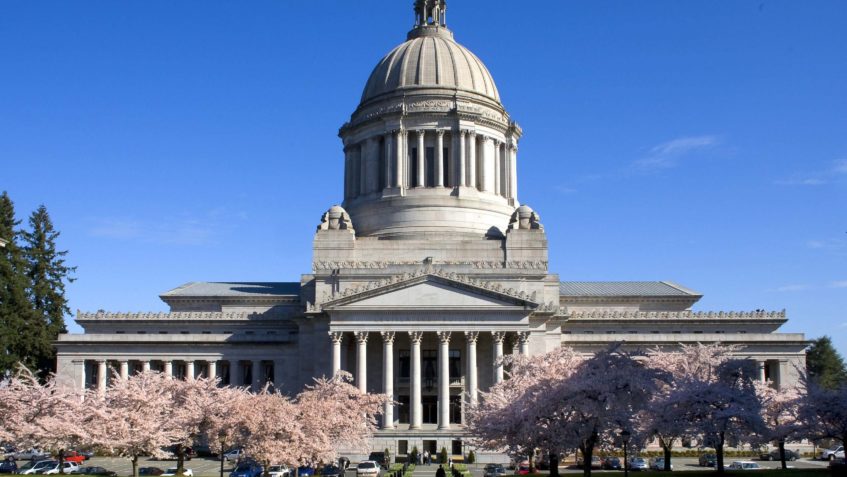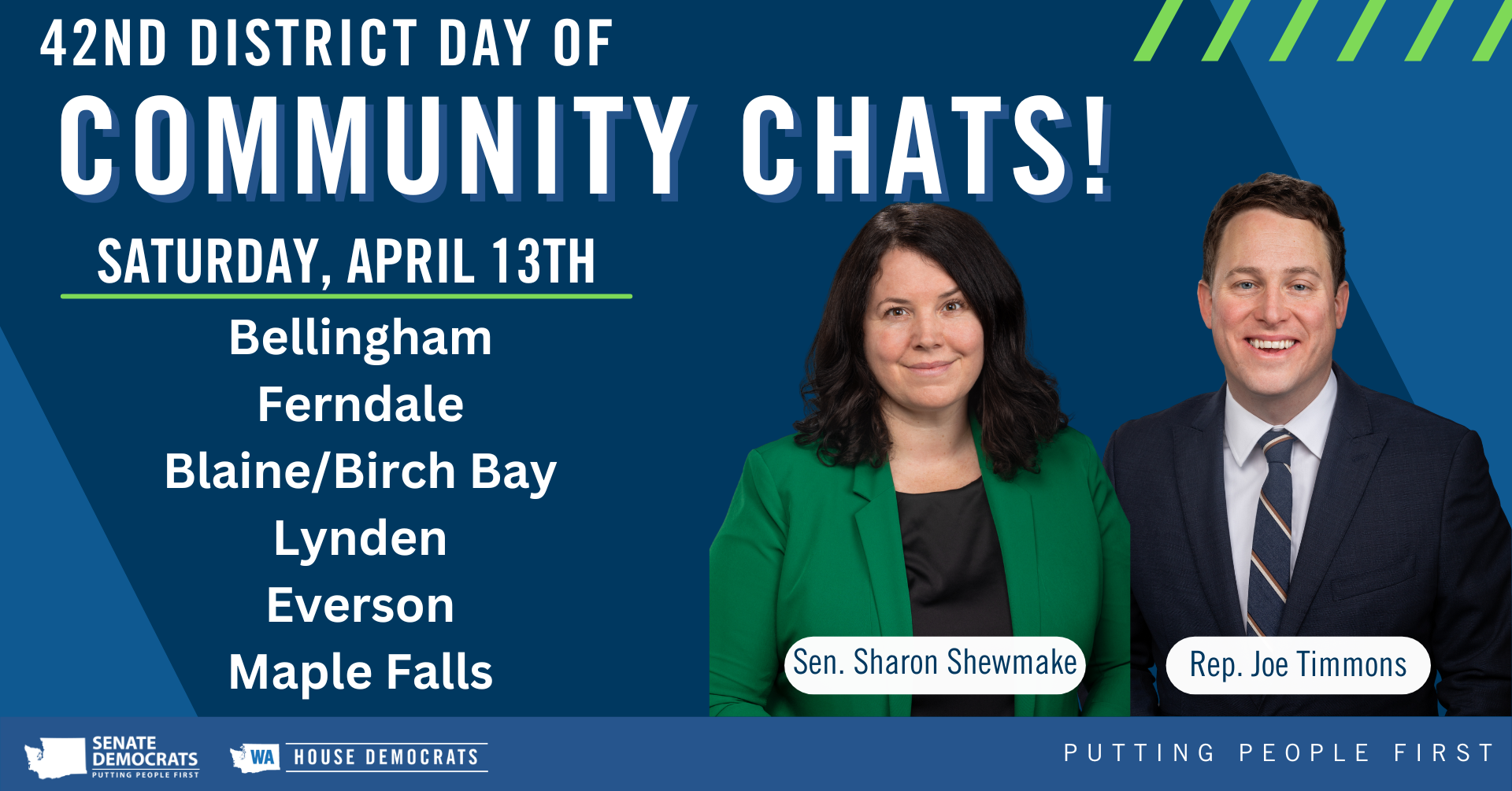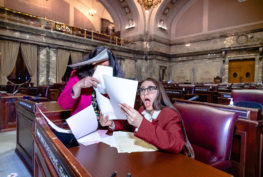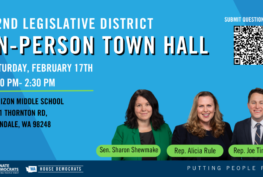The 2024 session is off to an exciting start! It’s a short session, which means things will move fast. Our democracy prospers when people understand how government works and how they can connect to be heard. So I’m going to use this newsletter to tell you how to follow the legislative session like a pro!
Welcome to the Senate!
The Washington State Legislature works on a two-year cycle or biennium. In odd-numbered years, we have a 105-day long session to start off the biennium, and in even numbered years we have a 60-day short session. Our biggest job during the long session is to negotiate and pass a budget. During the short session, we only amend the budget (we call this a supplemental budget). If you are a non-profit or public agency with a great project for funding, you might have asked me for a big budget item before the short session and heard me say “that’s a long-session kind of request.” Now you know why! This year is an even year, so it’s a short session, which means we pass a supplemental budget and aren’t expected to pass as many bills as in a long session.
The other big difference between a long and a short session is that bills from the previous long session can still be voted on in the short session. Bills are the foundation of the legislative process and even things like a budget are really just a big, huge bill.
Representatives and Senators introduce bills for consideration and the legislator who introduces the bill is the prime sponsor. You can look up bills here by their number or prime sponsor. Though legislators introduce the bills, they typically don’t write them all by themselves. Instead, we develop an idea, often with input from the community, and work with staff whose specific job it is to help write the text of the bill. Once it’s written and introduced, it’s assigned to a committee for deliberation.
It’s in those committees that bills receive public hearings, a critical part of the process. During those public hearings, lobbyists, experts, interest groups, other elected officials and regular folks can testify on the bill. People testify on why a bill is needed, why they think it’s a terrible idea, or suggest ways to make the bill better. I think the committee process is pretty cool. Even when I’ve spent all year working on a bill, talking to as many stakeholders as I can think of, incorporating their ideas and talking to them again and again, new opportunities, problems and ideas come up in public testimony. We all have such different experiences, so more people paying attention to bills and committees, in my mind, makes our laws and our state work better.
If the committees pass a bill, it is then sent to the Rules Committee, which then decides if it will be pulled to the floor to be voted on by the whole Senate and then the whole process starts again in the House.
If you want to learn more, I highly recommend watching this video or reading the University of Washington’s Legislative Guide.
Making your Voice Heard
There are lots of ways to learn about what bills the legislature is considering. You might sign up for your favorite advocacy groups’ legislative updates. Organizations like Washington Conservation Action, the Association of Washington Business, the Washington State Labor Council, the FaithAction Network, and many more regularly send out helpful information on important bills, opportunities to testify, and upcoming events. You can also track committees you’re interested in, follow your favorite legislators, or look up bills by topic. Reading bills is tricky. This website shows you what the different parts of the bill mean, and explains some helpful terms. I also think it’s useful to read the bill reports and if you ever have questions, you can ask me.
Once you find a bill, it’s time to add your voice to the process. You can testify to the committee in person, testify remotely via Zoom, or submit written testimony online. You can also email individual legislators. Many of you email me about bills you support or oppose. I read every email and try my best to respond. You can also email the prime sponsors of bills or members of the committees, who may have more insight into their bill than your representative. None of your legislators are all-knowing, so we tend to specialize in various policy areas. I work on housing, agriculture, transportation and environmental and natural resource issues. So, while I personally have opinions on things like higher education policy (my day job is in higher education!), I don’t sit on that committee. Luckily, my seatmate Rep. Joe Timmons does sit on the higher education committee and will be prepared to know the players and policy environment on that topic. Government works because different people with different skills work together to craft the best policy for the state!
Successful advocacy requires connection. Whether talking to me or any other decisionmaker, always look for common ground and be respectful.
Bills I’m Excited About!
This session, I’ve introduced some exciting legislation. We’re working to improve the process of adjudicating water rights, create a green energy community fund so communities that host green energy projects see local benefits from those projects, expand access to the working families’ tax credit, and transition all of our school busses to zero emission electronic vehicles!
These are just a few of the bills I’m passionate about, and I look forward to sharing more about them, and other exciting pieces of legislation, as the session continues!
Which bills are you excited about? Let me know!
You can reach me any time at Sharon.Shewmake@leg.wa.gov, and your input is always valuable. Thanks for reading, and I look forward to hearing from you!




